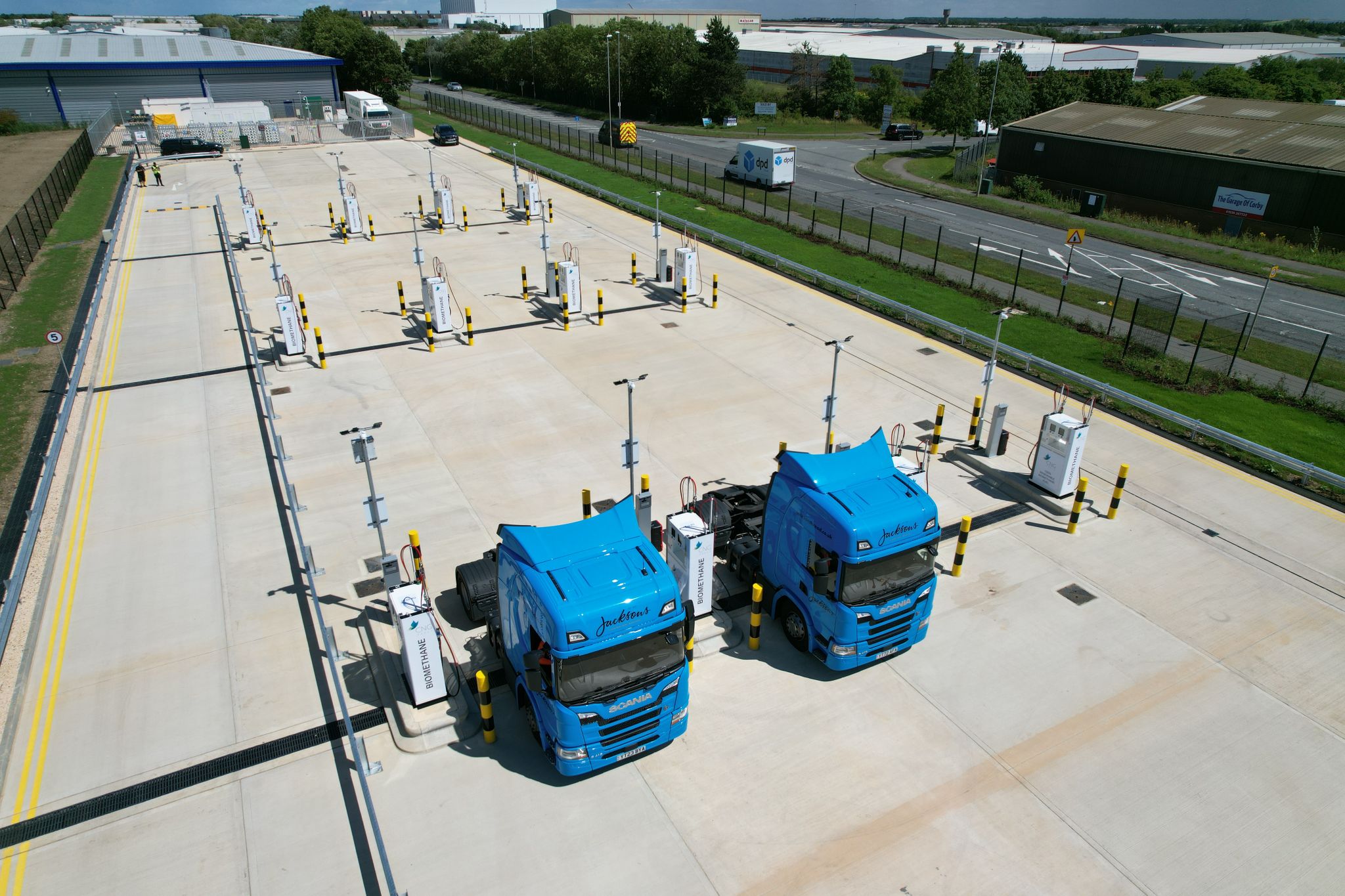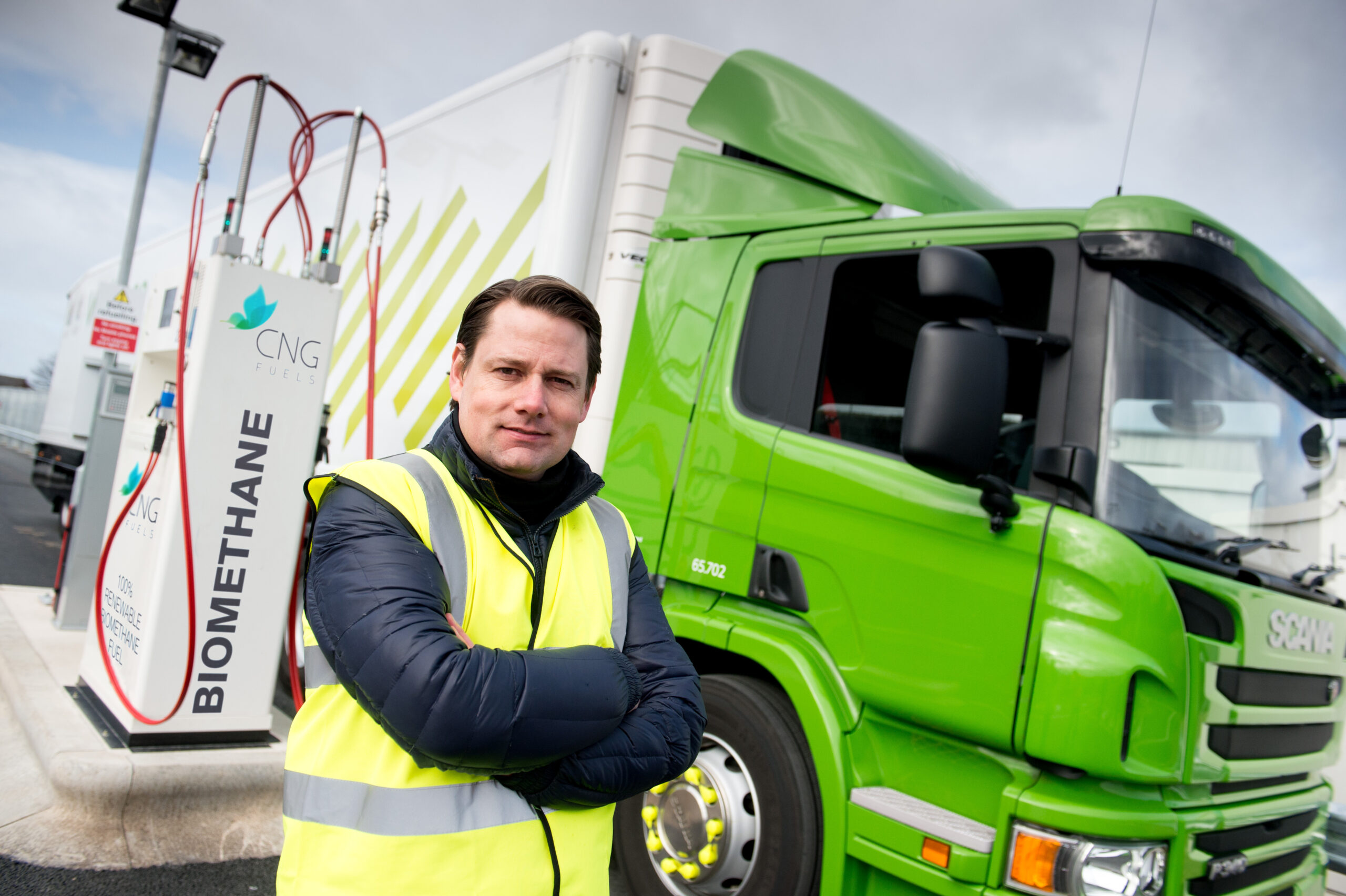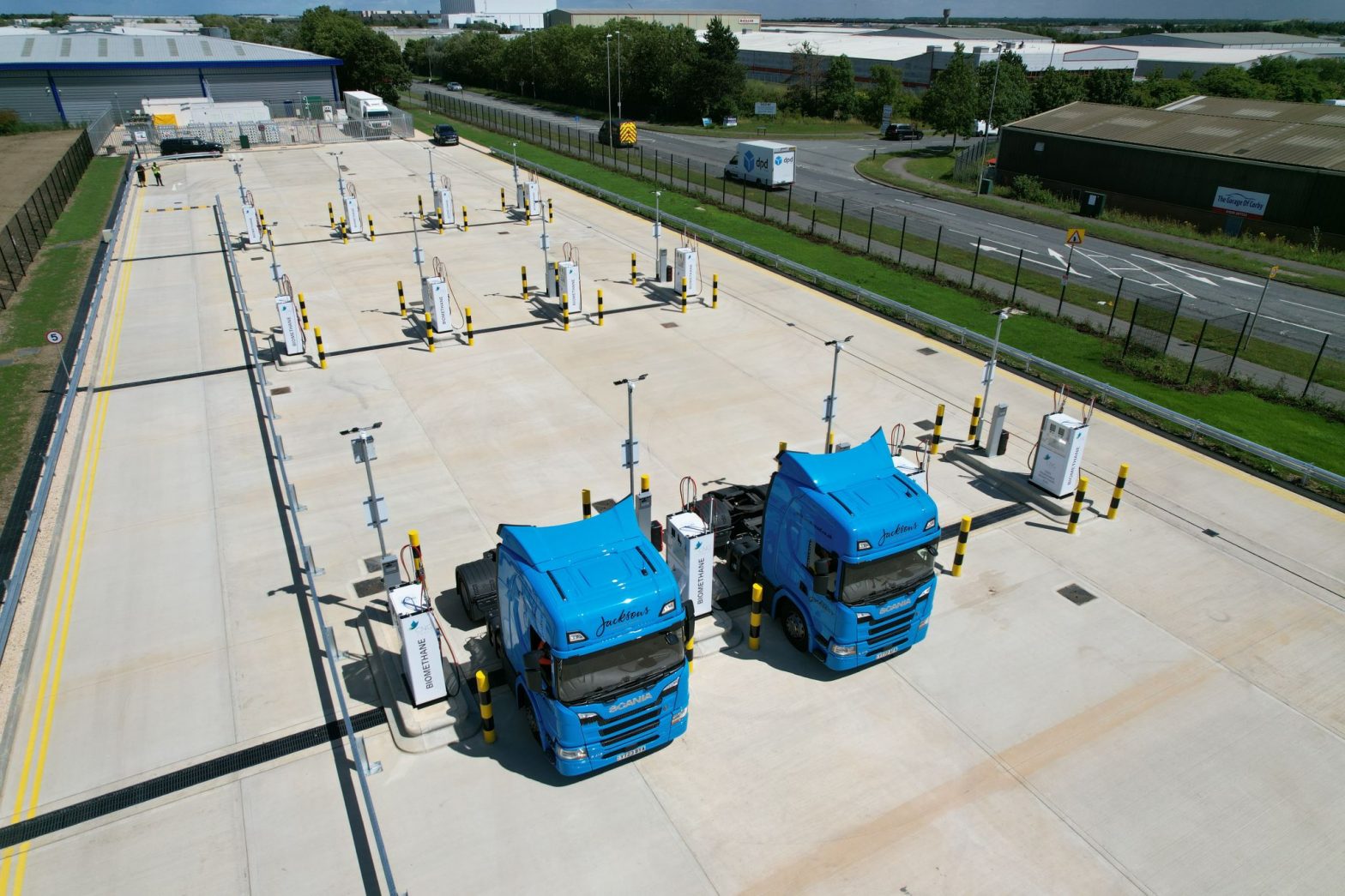With the UK’s 2040 end-of-sale of new, non-zero emission HGVs on the horizon, the commercial vehicle sector is rightly planning ahead for a future of battery electric and hydrogen trucks.
With decarbonisation is an increasingly important feature of the strategic plans for truck companies, gas power is still relevant as a useful transitional fuel to cut emissions while businesses consider when they can invest in battery electric (BEV) or hydrogen alternatives.
BEV and hydrogen trucks will inevitably be a major part of the UK’s road transport system with Scania, one of the most committed OEMs to low emissions fuels, expecting half of its global truck sales to be BEV by 2030. At the same time, it remains committed to giving fleet operators that want to cut emissions the option of gas power given not all are able to make the full switch – for example, due to a shortage of HGV-suitable public infrastructure, a lack of upfront capital investment, or even the know-how to transition their depot.
Last year, for example, Scania debuted the world’s first 6×2 CNG gas truck without a Hendrickson axle, opening up the option of gas power to even more fleet configurations.
“The long average life of heavy-duty vehicles will require diesel and gas variants to be actively replaced – typically by HVO, biodiesel, and biomethane – if we are to reach global targets,” a Scania spokesperson said.
“There is no silver bullet solution to decarbonisation. That’s why we offer every viable fuel and power option on the market for operators to choose from to reduce their emissions.”

One of the biggest barriers to gas adoption has historically been infrastructure, but that is thanks to companies such as CNG Fuels and Gasrec, which have taken a different long-term view.
Philip Fjeld, CEO of CNG Fuels, believes there is no point in delaying. “The average customer that we have got is on a trajectory where they need to be net zero by 2035,” he said. “Some are further out in time, some are more aggressive, some want to be 100% by 2030 – but you can’t just continue to wait.”
The company, which operates 16 public-access gas stations across the UK, has seen massive growth which CNG Fuels says is reflected in the number of gas-powered trucks in operation the UK, exceeding 2,000 today compared with seven in 2016. The company expects around 4,500 gas-powered HGVs on UK roads by next year.
Gasrec Chief Commercial Officer James Westcott agrees that gas is already delivering results today, not in years to come.
“Biomethane HGVs can deliver meaningful carbon and cost savings,” he said. “Many of these trucks operate at high mileages and heavy weights – conditions under which emissions reductions are particularly significant.”
Gasrec is investing in major capacity expansions, including a new station at Hams Hall, expected to support 1,000 trucks per day, with further stations in the pipeline that will offer a combined 2,000-truck capacity by 2026 – and infrastructure to support up to 10,000 gas trucks by 2030.

Despite the optimism in the heavy transport sector, however, not everyone in the CV sector is planning a future with gas. Stagecoach, for example, one of the UK’s largest bus operators, is already releasing its gas-powered buses.
“Our current gas-powered vehicles are in the process of being phased out,” a Stagecoach spokesperson said. “We purchased circa 40 gas buses in 2014 and currently have 19 in use. There is no current intention to procure more.
“They have served us well, were reliable in the mean, and well received by our customers, drivers and engineers. We operated a mixture of Euro 5 and Euro 6 models, and a few have gone off to another operator for further use.”
The move reflects broader adoption of BEV and hydrogen buses, supported by government funding initiatives such as the Zero Emission Bus Regional Areas (ZEBRA) scheme. For inner-city routes and smaller vehicles with predictable range needs, BEVs and fuel cells are becoming more viable. However, given the importance of delivering net zero, transitional technologies such as gas can play a vital role in decarbonising fleets as they prepare for investments to fully move away from fossil fuels in line with government targets.
BACK TO ALL NEWS
